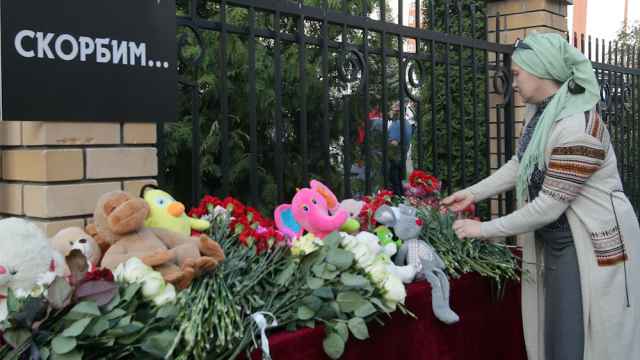Russia’s Security Council could transform the country’s digital landscape in order to create a secure communications network for state employees.
Under proposals by Security Council Secretary Nikolai Patrushev, Russia would create a new, independent Internet backbone, physically separate from the country’s preexisting Internet and public telecommunications systems, Patrushev wrote.
- A country’s Internet backbone is comprised of the country's main data routes, connected by strategically located computers and data points. By creating a second, separate system, the Security Council hopes to create a truly reliable and secure communication network for Russian state and military use.
It is not the first time that the idea has appeared in the Kremlin. Russia’s Communications Ministry first began drafting legislation to create a secure state communication in March 2015. The Economic Development Ministry later criticized the proposals, claiming that the changes would only duplicate existing special-purpose and state communications networks, but did not move to formally scrap the plans.
The move has also followed proposals to create a secure messaging service for state employees, designed to replace services such as WhatsApp and Viber.
State-owned mobile operator Rostelecom has been named as the preferred operator for the network, but the Federal Communications Agency (FCA), is still working on how such a system would work in practice.
Rostelecom could potentially incorporate the network into its existing infrastructure, with the state purchasing an additional issue of the company’s shares to help finance the project.The scenario would cost the Russian government 663.4 billion rubles ($10.2 billion), with the federal budget financing 581 billion rubles ($8.9 billion) of the total bill.
A further 54.86 billion rubles ($847 million) would be needed for annual operating expenses, plus a further 50 billion rubles ($770 million) if the government wanted to buy out the minority shareholders.
This option could present problems further down the line if the government ever decides to privatize Rostelecom.
Although the state’s stake in Rostelecom was included in the list of assets available for privatization in 2014-2016, the decision to move forward on the sale was repeatedly postponed at the request of intelligence agencies and the Defense Ministry, who use the state firm’s services.
Another possibility would see Rostelecom hand over the network to a subsidiary, which would then be sold to the state. As these types of transaction require approval from 75 percent of the shareholders, the government may need to increase its own stake to make this happen, costing roughly 50 billion rubles ($770 million). A further 663 billion rubles ($10.2 billion) would be needed to create the network, 60 billion rubles ($942 million) to purchase the subsidiary from Rostelecom, and 25 billion rubles ($385 million) per year in operating costs.
A third option would be for Rostelecom and the FCA to sign a 10-year contract: Rostelecom would connect state agencies to the network in return for payment. The state would retain its current stake in Rostelecom and would not take ownership of the secure network. This scenario would still set the government back some 623 billion rubles ($9.6 billion) over the decade.
Budget restraints are likely to be at the heart of the government’s decision making process, with one source close to Rostelecom’s senior management expressing doubts that the federal budget could finance the project. The state is yet to pay the company for building a number of fiber-optic networks to eliminate digital divide, the source said. The Finance Ministry is also likely to oppose the project, a second source said.
Presidential spokesman Dmitry Peskov, the Communications and Finance Ministries and Rostelecom all declined to comment.
A Message from The Moscow Times:
Dear readers,
We are facing unprecedented challenges. Russia's Prosecutor General's Office has designated The Moscow Times as an "undesirable" organization, criminalizing our work and putting our staff at risk of prosecution. This follows our earlier unjust labeling as a "foreign agent."
These actions are direct attempts to silence independent journalism in Russia. The authorities claim our work "discredits the decisions of the Russian leadership." We see things differently: we strive to provide accurate, unbiased reporting on Russia.
We, the journalists of The Moscow Times, refuse to be silenced. But to continue our work, we need your help.
Your support, no matter how small, makes a world of difference. If you can, please support us monthly starting from just $2. It's quick to set up, and every contribution makes a significant impact.
By supporting The Moscow Times, you're defending open, independent journalism in the face of repression. Thank you for standing with us.
Remind me later.






